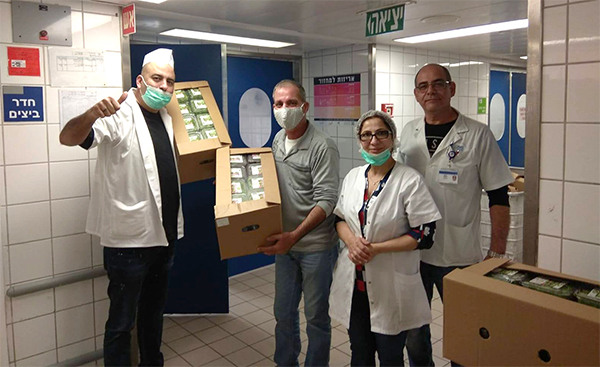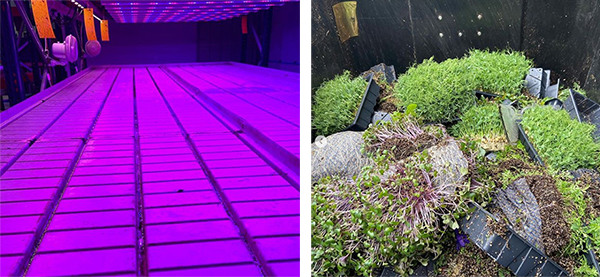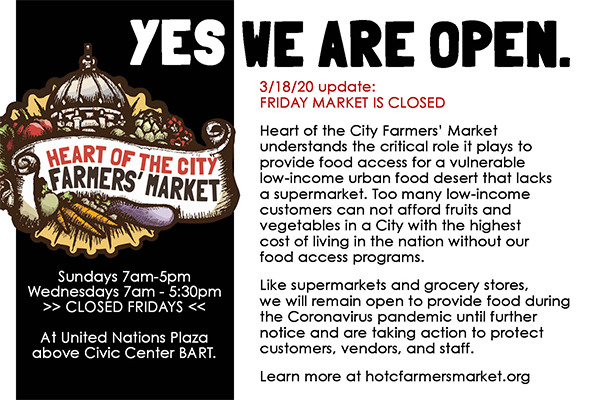Whereas on one hand the demand for vegetables went through the roof following mass hoarding, many vegetable growers have also noticed the downside of the outbreak. Farmers markets shut down and many small growers usually find a good market in the local hospitality and service industry. With that shutting down, they have to shift their business.
Hospitals and needy people
There's smiling faces in the photo as it is clear all parties are making the best out of it. Under the shadow of the COVID-19 and due to the cancellation of orders, the Israeli microgreen growers of 2bfresh decided to donate their microleaves to local hospitals and needy people. Normally they sell to restaurants, hotels and catering - a market that has shut down almost completely in Israel.

"We couldn’t stand the idea of throwing away our products" says Uzi Teshuva from 2bfresh' Israel. "Microleaves are rich in vitamins and anti-oxidants that can strengthen the immune system, which is so important these days, so we decided to donate it to hospitals, and needy people."
Stop growing
They're not alone. Microgreen growers all over the world experience the effects of the outbreak. Ken Holland, grower of microgreens and specialty vegetables in Newcastle, England, usually spends his morning harvesting and packing vegetables for restaurants from both his open field & greenhouse production as well as his Urban Cultivator indoor facility. "Today there's no rush as there's no restaurant orders. We live in strange times", he shares.
The company will open up a vegetable box scheme via their website later on in the week, but for now he had to turn off his growing tables and throw the living produce in the bin. "That's the reality of businesses in the hospitality industry," he says.

Farmers markets
In addition to vertical farms, many other growers depending on food service or local markets will feel the effects of the outbreak and the lockdown. Especially in the US farmers markets have become more and more popular and rose up to 8,476 in 2015, according to USDA’s Agricultural Marketing Service. In 2012, 34 percent of all U.S. produce farms—those producing vegetables, fruit, or nuts—sold food through local food marketing channels, whereas only 3 percent of field/other crop farms and 8 percent of livestock/livestock product farms did so.
Now the future of the farmers markets is unclear. On one hand people rely on them and fresh fruits and vegetables are inevitable in staying vital and they are qualified as Essential Businesses in many places, yet on the other hand they are canceled and have to deal with the social distance rules, in what it is also advised to stay home as much as possible.
"Too many low-income customers cannot afford produce in a City with the highest cost of living in the nation without our food access programs", the team with Heart of the City Farmers’ Market in San Francisco says, explaining how they have a critical role to provide food access for a vulnerable low-income urban food desert that lack a supermarket. "Like supermarkets and grocery stores, we will remain open to provide food during the Coronavirus pandemic until further notice with special measures incorporated."

Yet on the other hand also many markets shut down. The Seattle Neighborhood Farmers Markets for example will close down until at least April 13 to prevent the spread of the coronavirus. "For 26 years, the Neighborhood Farmers Market has provided the link between hundreds of Washington farmers and food producers and you, our neighborhood shoppers. And that is what we will continue to do as we explore safe options to connect you with local food."
Now the organisation is looking for other ways to connect growers with consumers. They launched the Good Farmer Fund as an emergency relief to help farmers in their market system get through times of crisis.
Pick-up points
Growers delivering their produce directly to consumers report an increase in demand, yet even they have to adjust their business model. The team with Lufa Farms has to deal with the shut-down of pick-up points for example. The company is known for their broad network of pick-up points. "To help counteract the food desert problematic, where grocery stores are scarce or missing. They also serve as an efficient means of delivering all those baskets collectively to Lufavores, and promote local neighbourhood economy and vitality." Yet the demand for their produce seems to remain high.
Also growers with a store at their farm will have to deal with the virus. "We have made the very difficult decision to temporarily close our store to walk-in guests effective today, March 18th. I can’t believe I’m having to write this as we prepare for spring, a time for getting outdoors and coming to the greenhouse. But, it’s an easy decision for us to make, putting the health of our staff and you, first," the team with strawberry grower & plant market Heemans say. In addition to their flowers and plants, they also supply their own strawberries during the summer and fresh produce from other nearby growers. "At this moment Heeman’s mission to be your local connection to flowers, flavour and fun does not change. This is why effectively immediately we are launching two new initiatives, online shopping and kerrbside pick-up. Our team is working round the clock to add the plants, products and beverages you love from Heeman’s to our online store."
Local growers
So what to do when you are one of the local growers? Purdue University has launched a guide for local producers to navigate the outbreak. Focused on the Indiana market, this one could be useful for growers in more places. "Although the regular farmers’ market season is still six to seven weeks away, there exists significant potential that these markets will be postponed or potentially canceled", they say.
"Additionally, many of your businesses may derive income from sales to restaurants — which recently shifted to takeout or delivery orders only under a government mandate. Further restrictions, cancellations and closings related to COVID-19 also could have a major impact on demand for your products. This means you must become proactive in connecting with your customers. People will still want to eat fresh fruits and vegetables, animal proteins such as meat, eggs, and dairy, and value-added food products, and they will still want to purchase flowers and vegetable seedlings."
In their guide, they offer ideas on changing the business model, meeting the needs of the market and reaching your customer base without increasing potential exposure to COVID-19 as well as continuing to generate income during this difficult period. Although some are mainly focused on the Indiana market, it might be an inspiration for all.
